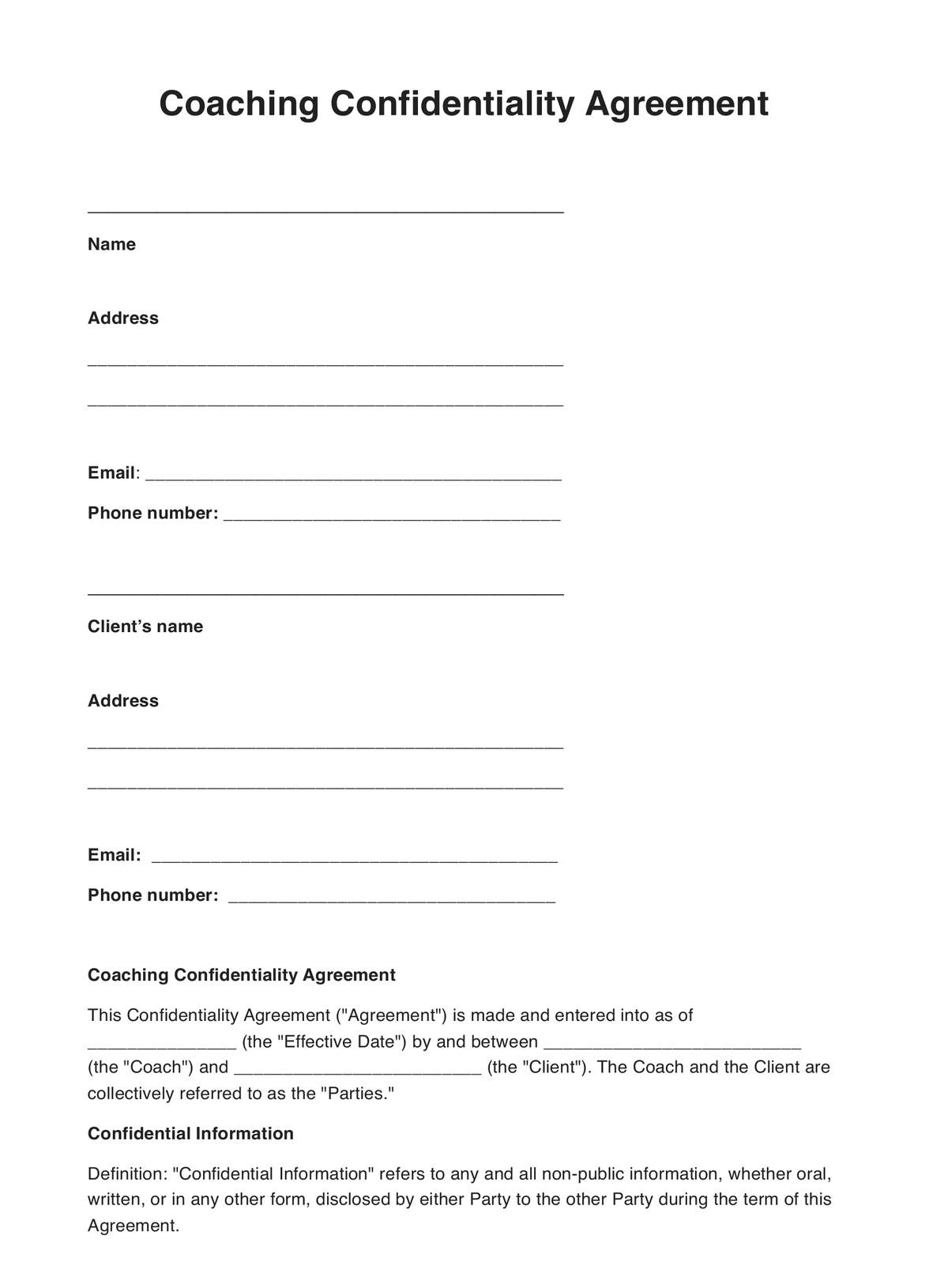Coaching Confidentiality Agreements
Download a free Coaching Confidentiality Agreement template and example. Protect yourself and your clients with our professionally written confidentiality agreement.

By Ericka Pingol on Jul 17, 2024.
Fact Checked by RJ Gumban.


Table of content
What is a Coaching Confidentiality Agreement?
A coaching confidentiality agreement is a legally binding contract that outlines the terms and conditions of confidentiality between a coach and their client. This agreement ensures that sensitive information shared during coaching sessions remains protected and not disclosed to any third party without the explicit consent of both parties involved.
As a coach, it is essential to have a confidentiality agreement in place to maintain trust and professionalism with your clients. This agreement sets clear expectations and boundaries for you and your client, ensuring their confidential information is safeguarded.
Have a look at this video to find out about various life coaching techniques:
What should be included in a Coaching Confidentiality Agreement?
A coaching confidentiality agreement should include the following key elements:
- Identification of parties: Thecoaching agreement should identify both parties involved, specifying their roles as coach and client.
- Definition of confidential information: The agreement should define what constitutes personal information. This typically includes any information disclosed during coaching sessions and any records or materials related to the coaching program.
- Obligations of the coach: The agreement should outline the coach's obligations regarding the client's confidential information. This includes the coach's responsibility to keep the information confidential and not to disclose it without the client's explicit consent.
- Exceptions to confidentiality: The agreement should also specify any exceptions to the confidentiality clause. This may include situations where the coach is legally obligated to disclose information, such as when there is a risk of harm to the client or others.
- Duration of the agreement: The agreement should state the duration for which the confidentiality clause is binding. This period could extend beyond the termination of the coaching relationship, depending on the particular circumstances.
- Signature of parties: Lastly, a coaching confidentiality agreement or life coach contract should be signed by both parties, indicating their understanding and acceptance of the terms. This creates a legally binding contract designed to protect the creative process and maintain professional standards in the coaching business.




